Tunisia
A steady flow of taxis has rolled up outside the Ivorian embassy in Tunis in recent days, depositing dozens of migrants who say they no longer feel safe amid an officially sanctioned climate of fear.
After a wave of arrests in recent weeks, President Kais Saied gave a speech on Wednesday (Feb. 15) that critics said was openly racist. Many sub-Saharan Africans in Tunisia are now heading for the exit.
"We want to go home," said Constant, who arrived at the embassy early on Friday in the hope of getting her paperwork in order.
In his speech Saied had ordered officials to take "urgent measures" to tackle irregular migration, claiming without evidence that "a criminal plot" was underway "to change Tunisia’s demographic make-up".
His comments, echoed a xenophobic theory known as the "great replacement" theory. It is popular among anti-immigrants figures. It is also infamous because attacker Brenton Tarrant who killed 51 Muslims in Christchurch (New Zealand) in 2019 notably praised it.
Aboubacar Dobe, head of a radio station for French-speaking migrants, said it was "clear that things are different since Saied’s speech".
The head of Radio Libre Francophone said he had received threatening phone calls. "When it was just the (recently created far-right) Tunisian Nationalist Party or on social media, people thought the state would protect them,” he said.
"Now, they feel abandoned." The African Union also expressed concern following Saied’s remarks on migrants, calling on its member states to "refrain from racialised hate speech that could bring people to harm."
"They don't feel safe"
Outside the Ivorian embassy, one couple arrived after being evicted from their apartment, their worldly belongings in backpacks and suitcases.
Three other young women were dropped off by a smartly dressed Tunisian woman. "They’ve been working at my beauty salon for two years," she said. "They’re leaving now because they don’t feel safe."
Constant, who has been unemployed for six months, said she has set up a WhatsApp group for Ivorians wanting to go home.
"I’m here to organise an exit permit, because I’ve overstayed by four years and I can’t afford to pay the fine" of more than 1,000 euros ($1,055), she said.
Other migrants spoke of harassment and intimidation, including fires lit outside their buildings or attempts to break in. "The landlords are kicking us out; people beat us up or mistreat us," said Wilfrid Badia, 34, who has spent six years in the North African country eking out a living on casual jobs. "To be safe, we decided to come to the embassy to sign up to go home."
Hosni Maati, a lawyer who helps an association for Ivorians in Tunisia, said that "since the president’s speech, (Tunisians) have totally lost it."
Maati said sub-Saharan Africans had been living without papers in Tunisia for years as authorities turned a blind eye. Bureaucratic obstacles prevented many from regularising their status, making them easy targets for exploitation by unscrupulous employers as cheap labour.
Authorities began a wave of arrests targeting migrants two weeks ago and have so far detained around 400 people, rights groups say. Most have since been released. "You can’t solve such a complex situation by making a speech and arresting people left, right and centre," Maati said.





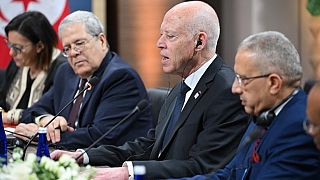
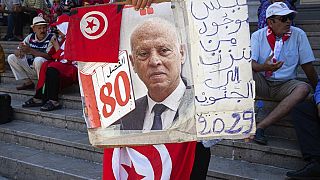

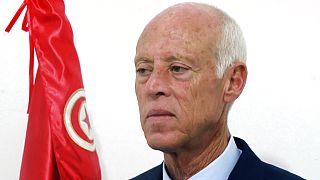
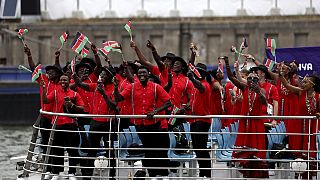

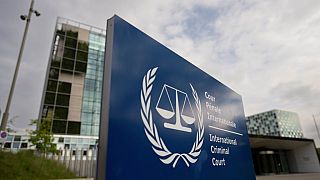
Go to video
Over a dozen African migrants dead, over 150 missing after their boat capsized
01:16
New Home Secretary denounces dailed Rwanda migrant scheme
00:58
UK pledges £84m to Africa, Mideast in bid to stop illegal migration “at source”
01:08
Meloni visits Libya for migration talks with Dbeibah
01:31
Masked men board migrant boat during rescue operation off Libyan coast
01:29
UK-Rwanda deal “didn't stipulate money should be returned”